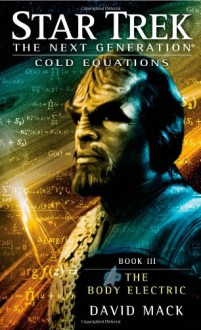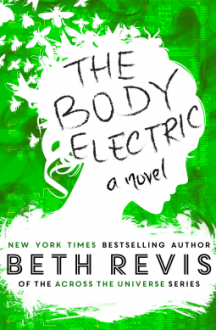

Bradbury at his best combines nostalgia and creepiness in a tone reminiscent of the old Twilight Zone TV series. At his worst his prose is florid and purple with just enough misogyny to make reading him very uncomfortable. The writers of Mad Men must have grown up on Bradbury's fiction because all his men tend to have a drink in one hand and a cigarette in the other and take no guff from their women who are silly and hysterical and often need a good slap.
There are some good examples of Bradbury's short fiction in this collection. Heavy-Set is a genuinely creepy tale of a socially awkward loner that offers no solutions. Yes, We'll Gather at the River captures the fatalism of a dying small town. The strongest of the collection may be Night Call, Collect in which a bored twenty year man plays an extremely cruel joke on his future seventy year old self.
Bradbury's misogyny is on display in several stories. Tomorrow's Child features a bad mother who becomes a hysterical alcoholic after giving birth to a mutant child and has to be slapped back to her senses by her husband. The Haunting of the New has a wealthy socialite rejected by her new house for having lived too promiscuous a life. The main character of The Tombling Day is an extremely vain old woman who envies the dead because they never age and become unattractive. In The Lost City of Mars a poet repeatedly kills himself in a simulator to escape from his hated wife. The only positive female character in the collection is the Grandmother in the title story, and she is a female robot who has to care for the most angry and bitter little girl in fiction.
While Bradbury uses the Walt Whitman quote "I sing the body electric!" just as a way of referring to a robot, he actually tries to use Whitman's literary cataloging technique in a few of his stories and the results are tough. The title story as well as Any Friend of Nicholas Nickleby's Is a Friend of Mine include cataloging rambles that come across as self-consciously literary and pretentious. I find myself wishing Bradbury had followed the example of Thomas Wolfe would used the technique so well in his novels.
I have criticized the collection quite a bit, but there is material here worth reading. If you enjoy creepy nostalgia you will enjoy Bradbury, even though you have to put up with his excesses.

Plot:
Wesley, now a Traveler in his own right, discovers a terrifying machine at the galaxy's core, a machine which creates random wormholes and pulls entire star systems through it to feed a massive black hole. Neither the other Travelers nor Q can offer a solution, so he asks Picard for help in this crisis which could change, and destroy in the longterm, the whole galaxy.
Meanwhile, Data is faced with a terrible choice in his quest to resurrect his daughter.
Review:
I expected a bit more of this final part, to be honest. Again, it was a page-turner, but it wasn't as emotionally engaging as I had hoped.
The main adversary wasn't really terrifying to me in an emotional sense because, even with his record, Mack wouldn't destroy subspace and thus render any further stories moot. To me, the impact of the destroyed worlds got a bit reduced by the multitude of death and destruction in Destiny. So, the only question was who he'd sacrifice to sacrifice the situation. Somehow I feared it would be Data, but fortunately it wasn't. *g* But I wouldn't have put it passed him to shock us readers by such a move. The rest of the machine-plot contained a bit too much technobabble for my taste, and I'm just happy that there wasn't some kind of deus-ex-machina solution, i.e. Wesley hyper-warping the thing to another galaxy or into the blackhole etc. but a solutions that satisfied both sides.
I enjoyed seeing Wesley again, and I loved the scene with Q, but I was a bit perplexed by the crew's nonchalant reaction to him. I mean it's not every day a being like a Traveller pops in unannounced. Of course, I don't know if he made any appearance in another relaunch novel, but I got the impression that no one has seen him since that Riker/Troi-wedding visit-fiasco. So I'd have loved to see a scene with him being introduced to Rene and dealing with Picard being his stepfather. And it kind of bothered me that the rest of the crew called him Wesley or Wes (Smrhova), despite their knowing him for little more than a day (at least, that was my take on the timetable in this book after Wes warps the E-E to the machine). It's a bit the same issue I had with the crew and Data's interaction in Silent Weapons.
On to Data whose part was to me the most interesting one - small wonder, since I only picked up this trilogy because of what the cover for part 1 suggested would happen. Was there really any question as to whom he would sacrifice, given the choice between Rhea and Vaslovik (sorry, he'll always be Vaslovik to me *g*)? Of course, I'd have loved to see them be together, after all Data deserves a loving partner as much as anyone. But this was his chance to bring his daughter back to life - and maybe prevent any future offspring from suffering from the same flaws. And I think any parent would choose like that. I was surprised, though, that Vaslovik found it within himself to still help Data. What a loss it would have been if sacrificing Rhea had also robbed Data of his most heartfelt wish.
As emotional and heart-wrenching as this situation was, I feel kind of cheated that Lal's return's just got dealt with in the epilogue. As I said, to me Data and his mission were the glue that held this trilogy together - so I'd have loved to see this reunion in more detail. And actually I'd have loved if this had happened on the Enterprise with Data and Lal being among friends happy for them.
As for Data torturing Vaslovik... Even if it was apparently mainly for show (though, what kind of "secrets" did Vaslovik reveal?), he still inflicted injuries and submitted to being blackmailed - though, he must have known that doing so doesn't necessarily save Rhea. Or did this play into his hand in questioning Vaslovik after all?
On another note: Didn't Picard and Beverly agree on 3 or 4 more years at maximum on the Enterprise in Silent Weapons? Then why does Picard tell Worf that the wait for Picard to leave the Enterprise (and therefore to Worf's own command) could be a long one? OTOH, I definitely didn't get that "ready to settle down"-vibe from Picard any more which is kind of strange shift when it was so strong still in Silent Weapons.
Finally, I'm looking forward to what's in store next for especially Data and Lal. But it's kind of funny that all 3 most senior officers of the TV-series now have children. I can already see the next generation of Enterprise officers forming. *g*
As for this trilogy, to me the highlight definitely was Soong's sacrificing himself for Data. Unfortunately, the following parts didn't quite live up to the emotional impact of this moment. But Mack at least accomplished something: He got me interested in TNG-novels again, especially by leaving Data's future open.
~~
review originally written in 2012

There are no new plots, in YA as in other fiction, so the challenge is to mix and match and create new flavours. So Revis gives us the female teen protagonist - Ella - only child of two brilliant parents - one dead and the other dying. A benevolent, post-apocalyptic global dictatorship gone bad. Robots - androids - that may or may not be self-aware. Memory and identity. Freedom fighters, now sadly depleted so that there are just four left - Ella plus Jack, Xavier and Julie.
Julie and Xavier are barely sketches - there for the fights and the chases and to give tension to the group - they don't trust Ella, but bow to Jack's judgement. Jack is better drawn and seems to know Ella very well indeed - but she has no recollection of this.
So Ella is searching to understand who she is and where her memories have gone. And who she can trust, if her memories can be tampered with...
Revis cites P K Dick's work as being heavy influences, and I'd agree. There are clear parallels with Blade Runner and Total Recall. (I'm using the film titles as they're better known than the stories on which they're based.)
Everything was going well until the last ten chapters (there are about 80, but fairly short), and I really thought Revis had lost it. I can sort of see why she did what she did - I'd point to Inception, Source Code and Groundhog Day - but it seemed unnecessarily repetitive. Yes, each scene did play out a little differently, and a little bit more was learned about the nature of the enemy at each pass, but given that the enemy was supposed to be in control, they kept on repeating tactics which were clearly doomed to failure - 'This is your last chance, Mr Bond'. As I say, it got very repetitive and I can see the (stereo-)typical YA reader getting bored and frustrated.
So by the last chapter, when it all gets wrapped-up, I was not feeling sympathetic, and knocking off stars right, left and centre. Ella adopts typical superhero morality when meting out punishment to her defeated enemy, acting as both jury and judge.
I re-read the last couple of chapters, a day later, and decided I'd been a bit harsh. Revis' villain is at least shades-of-grey - a victim of end-justifies-the-means thinking. So one of those stars gets re-instated.
Final thought, then - a mostly-comfortable read with interesting ideas woven into the plot. Lots of nods to good adult SF. Add my usual moan about awful computer security in YA novels - I think I ought to write a blog about that - and I'd say that it is on a par with Hunger Games (with which it shares a first person present tense PoV), without being derivative.